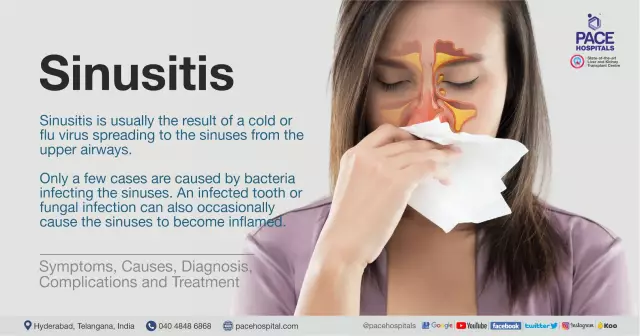- Author Curtis Blomfield blomfield@medicinehelpful.com.
- Public 2023-12-16 20:44.
- Last modified 2025-01-23 17:01.
At preschool age, a child very often suffers from colds, which are easy to treat. However, if a runny nose bothers him for quite a long time, his he alth worsens, these may be symptoms of sinusitis. The child has a lack of appetite, there are complaints of headache. If you have these signs, you should consult your doctor. Your child will receive professional help once the diagnosis is made.

What are the symptoms of sinusitis
The main signs of sinusitis are:
- Headaches, as well as pain in the ENT organs. With a sharp tilt, similar sensations appear in the bridge of the nose.
- Ear pain, hearing loss.
- Having a runny nose even after treatment.
- Nasal congestion.
- Temperature increase.
- Difficulty breathing, snoring during sleep.

Course of illness
When ignoring the primary focus of the disease or transferring the disease without the necessary treatment, the disease passes into another stage - chronicsinusitis. Symptoms and treatment of this form differ from acute. To prevent this condition, pay attention to the following factors that increase its likelihood:
1. Frequent eye infection (conjunctivitis).
2. Repeated occurrence of a runny nose with fever.
3. Poor appetite.
4. Sleep problems.
5. There is swelling of the eyelids upon awakening.
Diagnosis of sinusitis
1. Diaphanoscopy. Having noticed the symptoms of sinusitis in a child, the doctor recommends that you examine him to get a complete picture of the disease. X-ray studies are harmful to children due to radiation, therefore, diaphanoscopy is most often prescribed - the introduction of a special light bulb into the mouth that translucent sinuses. This method is used to identify the focus of inflammation.

2. In case of serious complications, experts recommend being examined by computed tomography, which allows you to see a picture of inflammation.
3. An ultrasound examination will also confirm the symptoms of sinusitis in a child, help to correctly diagnose and track the dynamics of the disease during treatment.
4. Occasionally, an MRI examination is prescribed. But it is used in case of suspicion of the spread of inflammatory processes to the facial tissue.
Treatment
Having found the symptoms of sinusitis in a child, the doctor you contacted prescribes a treatment regimen depending on the causes - these can be viruses, bacteria, andthe presence of fungi, and allergic reactions, and even injuries. For less complex therapy, try to identify the disease at the very beginning of its manifestation. The doctor selects antibiotics and procedures to help get rid of pus, relieve swelling, and strengthen the immune system. To avoid a sinus puncture, do not postpone a visit to a specialist if you notice symptoms of sinusitis in a child.
Traditional medicine
From the folk methods of treating sinusitis, inhalations from potatoes, as well as with the addition of propolis infused in alcohol, are especially popular.
But do not forget about the dangerous complications of this disease, consult your doctor before such procedures!






